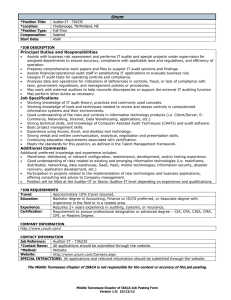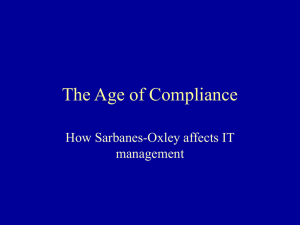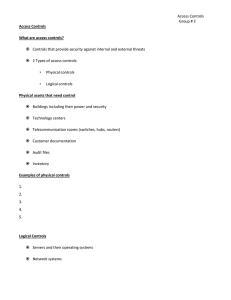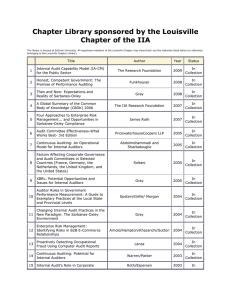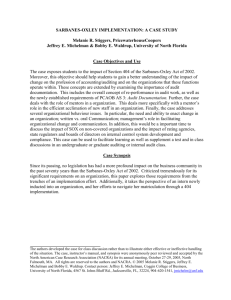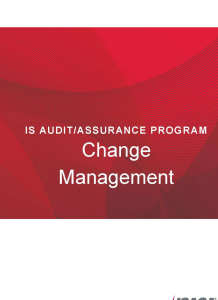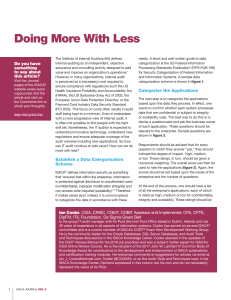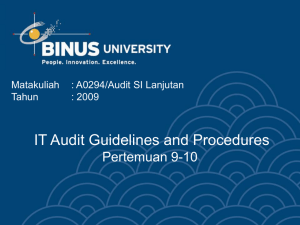The US Sarbanes-Oxley Act has fundamentally impacted financial reporting, auditing, internal
advertisement
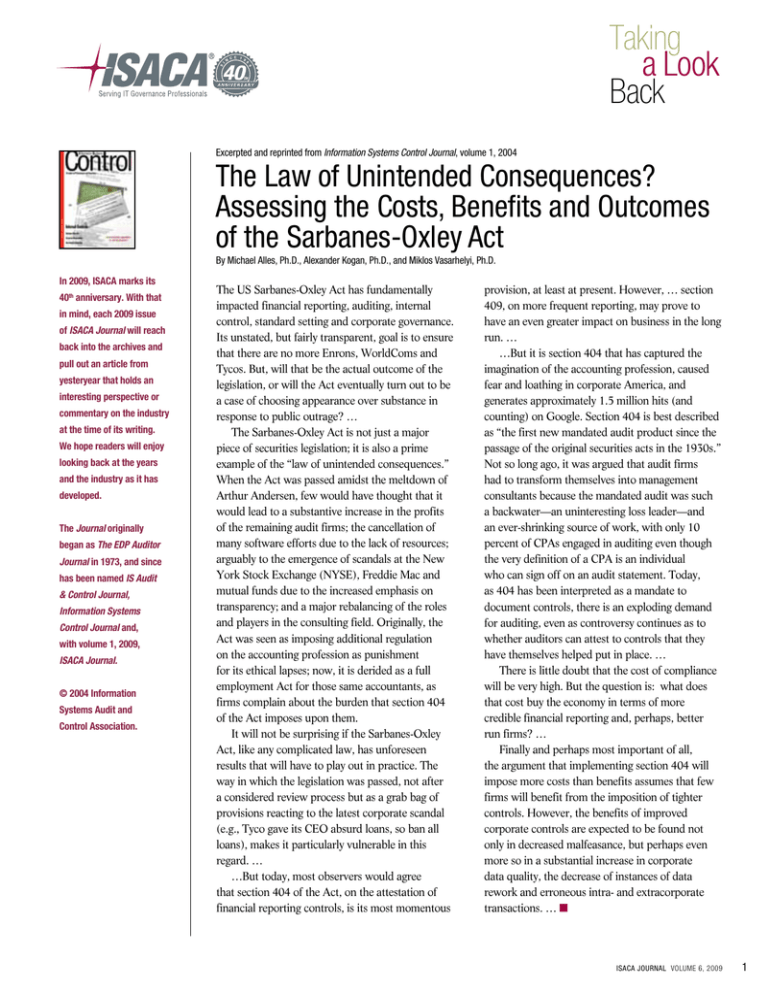
Taking a Look Back Excerpted and reprinted from Information Systems Control Journal, volume 1, 2004 The Law of Unintended Consequences? Assessing the Costs, Benefits and Outcomes of the Sarbanes-Oxley Act By Michael Alles, Ph.D., Alexander Kogan, Ph.D., and Miklos Vasarhelyi, Ph.D. In 2009, ISACA marks its 40th anniversary. With that in mind, each 2009 issue of ISACA Journal will reach back into the archives and pull out an article from yesteryear that holds an interesting perspective or commentary on the industry at the time of its writing. We hope readers will enjoy looking back at the years and the industry as it has developed. The Journal originally began as The EDP Auditor Journal in 1973, and since has been named IS Audit & Control Journal, Information Systems Control Journal and, with volume 1, 2009, ISACA Journal. © 2004 Information Systems Audit and Control Association. The US Sarbanes-Oxley Act has fundamentally impacted financial reporting, auditing, internal control, standard setting and corporate governance. Its unstated, but fairly transparent, goal is to ensure that there are no more Enrons, WorldComs and Tycos. But, will that be the actual outcome of the legislation, or will the Act eventually turn out to be a case of choosing appearance over substance in response to public outrage? … The Sarbanes-Oxley Act is not just a major piece of securities legislation; it is also a prime example of the “law of unintended consequences.” When the Act was passed amidst the meltdown of Arthur Andersen, few would have thought that it would lead to a substantive increase in the profits of the remaining audit firms; the cancellation of many software efforts due to the lack of resources; arguably to the emergence of scandals at the New York Stock Exchange (NYSE), Freddie Mac and mutual funds due to the increased emphasis on transparency; and a major rebalancing of the roles and players in the consulting field. Originally, the Act was seen as imposing additional regulation on the accounting profession as punishment for its ethical lapses; now, it is derided as a full employment Act for those same accountants, as firms complain about the burden that section 404 of the Act imposes upon them. It will not be surprising if the Sarbanes-Oxley Act, like any complicated law, has unforeseen results that will have to play out in practice. The way in which the legislation was passed, not after a considered review process but as a grab bag of provisions reacting to the latest corporate scandal (e.g., Tyco gave its CEO absurd loans, so ban all loans), makes it particularly vulnerable in this regard. … …But today, most observers would agree that section 404 of the Act, on the attestation of financial reporting controls, is its most momentous provision, at least at present. However, … section 409, on more frequent reporting, may prove to have an even greater impact on business in the long run. … …But it is section 404 that has captured the imagination of the accounting profession, caused fear and loathing in corporate America, and generates approximately 1.5 million hits (and counting) on Google. Section 404 is best described as “the first new mandated audit product since the passage of the original securities acts in the 1930s.” Not so long ago, it was argued that audit firms had to transform themselves into management consultants because the mandated audit was such a backwater—an uninteresting loss leader—and an ever-shrinking source of work, with only 10 percent of CPAs engaged in auditing even though the very definition of a CPA is an individual who can sign off on an audit statement. Today, as 404 has been interpreted as a mandate to document controls, there is an exploding demand for auditing, even as controversy continues as to whether auditors can attest to controls that they have themselves helped put in place. … There is little doubt that the cost of compliance will be very high. But the question is: what does that cost buy the economy in terms of more credible financial reporting and, perhaps, better run firms? … Finally and perhaps most important of all, the argument that implementing section 404 will impose more costs than benefits assumes that few firms will benefit from the imposition of tighter controls. However, the benefits of improved corporate controls are expected to be found not only in decreased malfeasance, but perhaps even more so in a substantial increase in corporate data quality, the decrease of instances of data rework and erroneous intra- and extracorporate transactions. … n ISACA JOURNAL VOLUME 6, 2009 1
